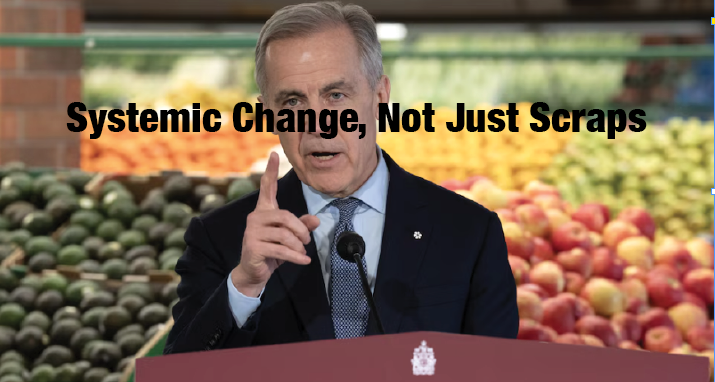
Response to Mark Carney’s Affordable Food Announcement: The Right to Food. Why it Matters.
By Ian Marcuse, Graham Riches and Vivian Davidson
Surely, ensuring no one in society is left hungry is an essential hallmark of a resilient and wealthy, healthy and educated nation well able to withstand US threats to our collective social well-being and national sovereignty.
Yet the recent announcement by the Prime Minister on new measures to make groceries and other essentials more affordable for Canadians makes no direct mention of food as a basic human need nor of the right to food.
Despite strong public calls to address housing and food affordability, for the time being, hungry Canadians will be limited to temporary rebates and another $20M to bolster public funding for food banks.
Clearly ending hunger in Canada is not yet Ottawa’s priority.
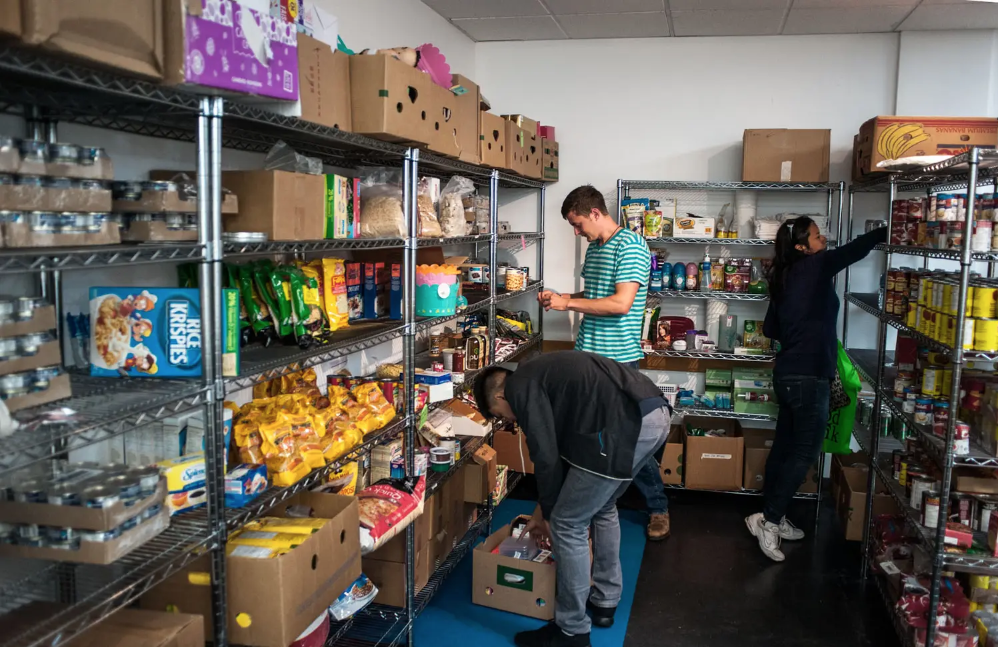
Support for Student Food Security: Letter to the Provincial Government
For students in BC, food insecurity is quickly becoming a crisis. We’ve seen a 20.19% inflation rate since 2020, the cost of renting in Metro Vancouver has increased by 36.6% since 2019, and groceries prices has increased by 11.4% in 2022.
Students are calling for the creation of the Student Food Security Grant
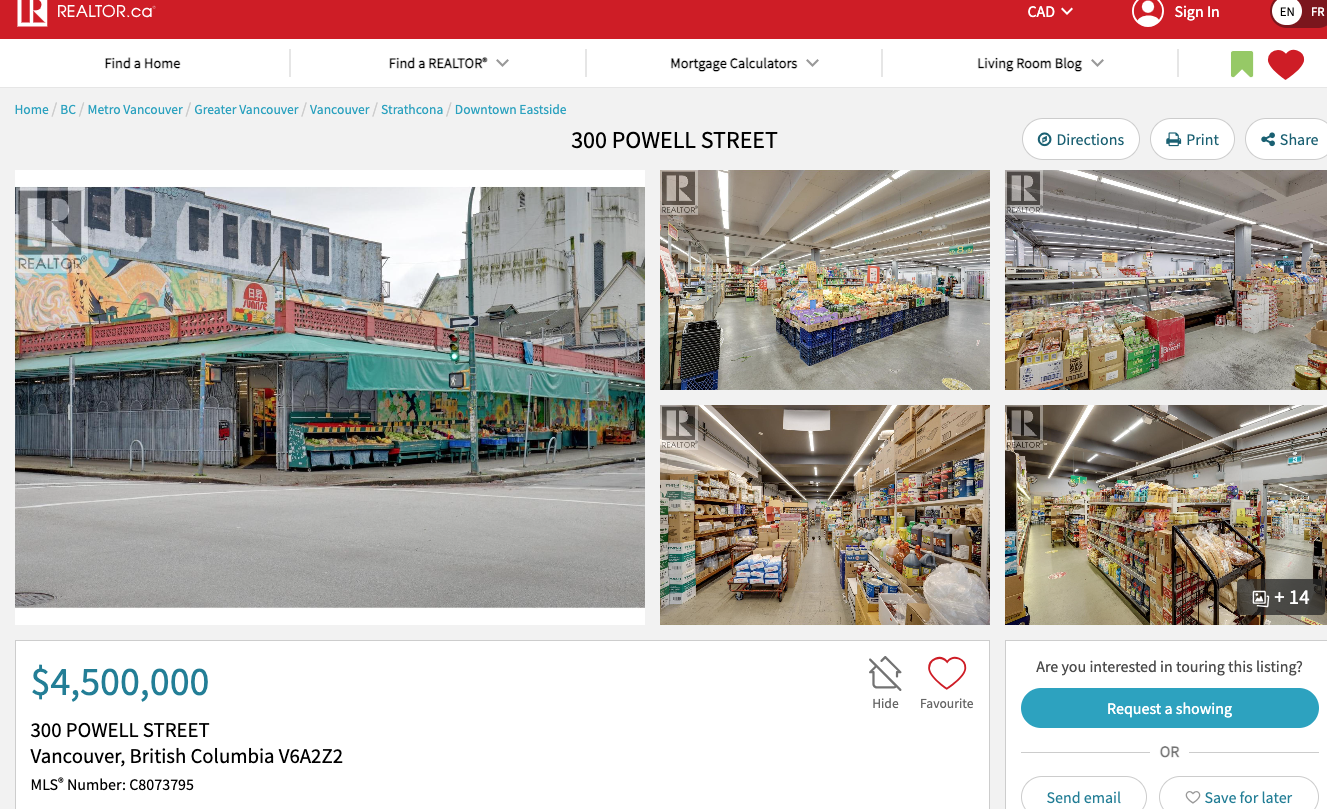
Sunrise Food Market – It’s Time for a Publicly Owned Grocery Store
Ian Marcuse
Dec 28, 2025
Sunrise Food Market in the Downtown Eastside at Powell and Gore is on the market for $4.5M. Sadly, the most affordable food store in Vancouver is unlikely to be reopened in the same manner, if at all. More likely, this vitally important affordable food market will be purchased by a large developer now able to cash in on the new recently approved ABC dominated City Council DTES zoning changes.

Solidarity on this International Migrants Day
Reprinted from Migrant Rights Network
The Vancouver Food Justice Coalition stands in solidarity on this International Migrants Day - December 20. We stand with all temporary workers, refugees, newcomers, and international students who come to Canada to seek a better life, but who also contribute to the well-being of Canadian society in often invisible ways. Migrants make up a large percentage of the food sector, working in agriculture, food processing, restaurants and fast food. It is through their hard work that we have food on our tables.
At the same time, we treat these workers as second class citizens without the same benefits as regular Canadians. Worse yet, growing racism, xenophobia and scapegoating is sowing hate in society. We are all immigrants on these unceded and stolen lands of Indigenous peoples.
The VFJC has written letters of support, signed petitions and attended rallies in support of full status and regularization of undocumented workers and others seeking dignified rights. We join with the efforts of the Migrant Rights Network.

Right to Food - Not Charity on International Human Rights Day
Isabella Falsetti,
Dec 10, 2025
VANCOUVER, B.C — 24.4 percent of British Columbians — 1.3 million people — experienced food insecurity in 2024 compared to 15.8 percent in 2018. Food Banks BC reported that 1.1 million people visited their sites in the first half of 2025. In a country as wealthy as Canada and in a province with the nation’s highest rates of household wealth, these levels of food insecurity are inexcusable.
Article 25 of the UN Universal Declaration of Human Rights states that “Everyone has the right to a standard of living adequate for the health and well-being of himself and of his family, including food, clothing, housing and medical care,” though there is no legislation at any level of government to ensure the right to food is being met free of charity. More specifically, the International Covenant on Economic Social and Cultural Rights stipulates that state parties have “the obligations to respect, protect and fulfil (facilitate and provide) the [Right to Adequate Food],” cited in the UN Food and Agriculture Organization’s Right to Food Guidelines.

Advancing the Right to Food in Vancouver with Adequate Funding - Vancouver 2026 Budget Brief
The City of Vancouver majority ABC Council has brought forward a proposed 2026 budget with a 0% property tax increase. While claiming to maintain the services people count on most, including community grants, public safety, road and sidewalk maintenance, and community centre and library hours, this budget will require that the City identify $120 million in revenue opportunities and expenditure savings. The budget however lacks transparency and gives no line by line details as to where cuts will be made. Most concerning are significant proposed cuts to Arts, Culture and Community Services (12%) as well as Planning, Urban Design and Sustainability (14%) crucial areas that support equity, well-being, environmental sustainability, affordability and livability.
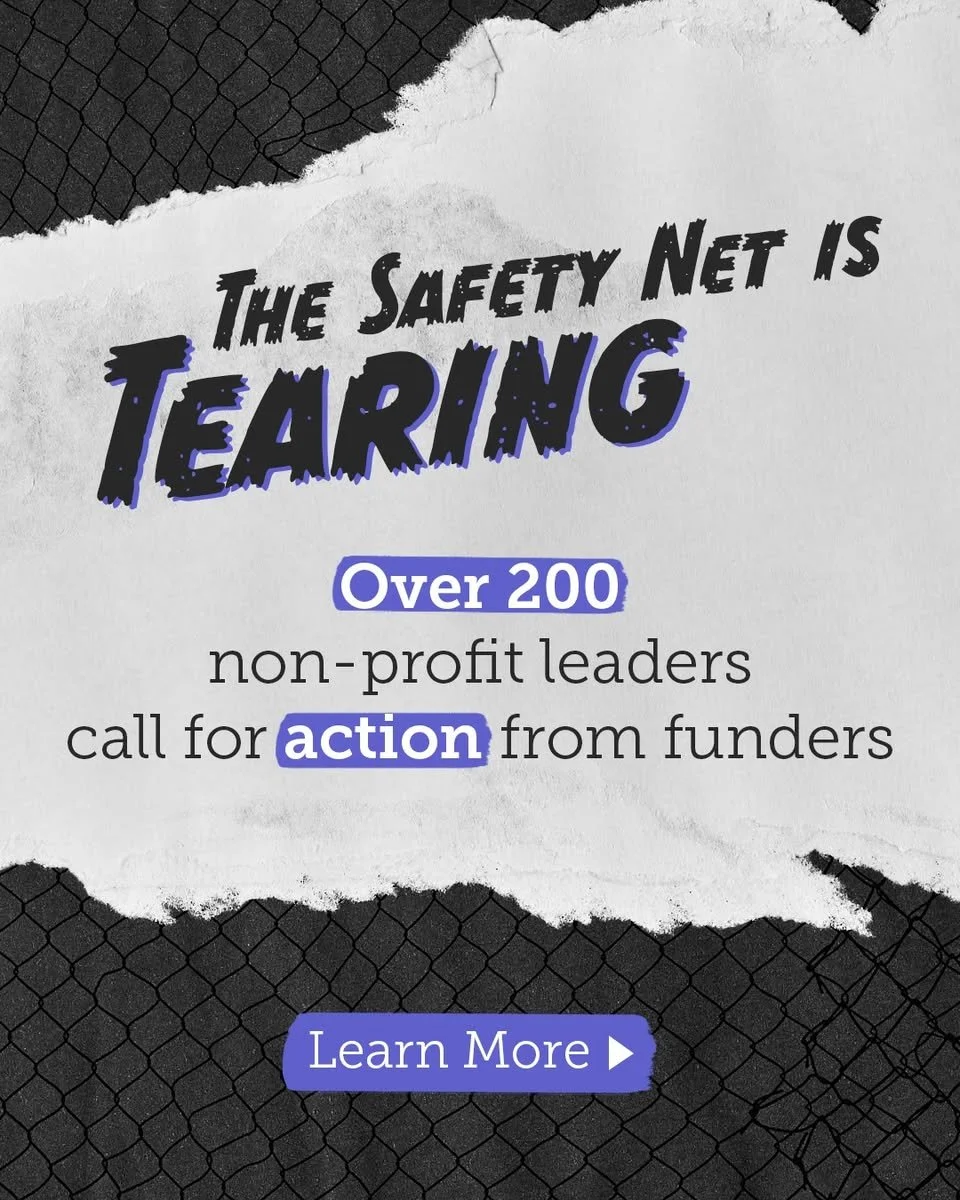
Open Letter: The Safety Net Is Tearing—Funders Must Act Now
BC’s nonprofit sector is in crisis. An urgent funding shortfall is threatening the survival of essential community services across the province, with over 200 nonprofit leaders calling for immediate action.
We are nonprofit leaders from across British Columbia, writing with growing concern for the future of our sector and the communities we serve.
Nonprofits are the social infrastructure that holds communities together. We provide food, shelter, care, and connection. We support those facing poverty, violence, isolation, and injustice. We protect the environment, create cultural spaces, and advocate for equity.
But today, we’re facing challenges that existing funding systems can no longer meet. Demand is growing and funding is shrinking.
Many organizations are operating month to month, scaling back programs, and watching staff burn out or lose their jobs. Some are closing entirely.
Read the open letter at:
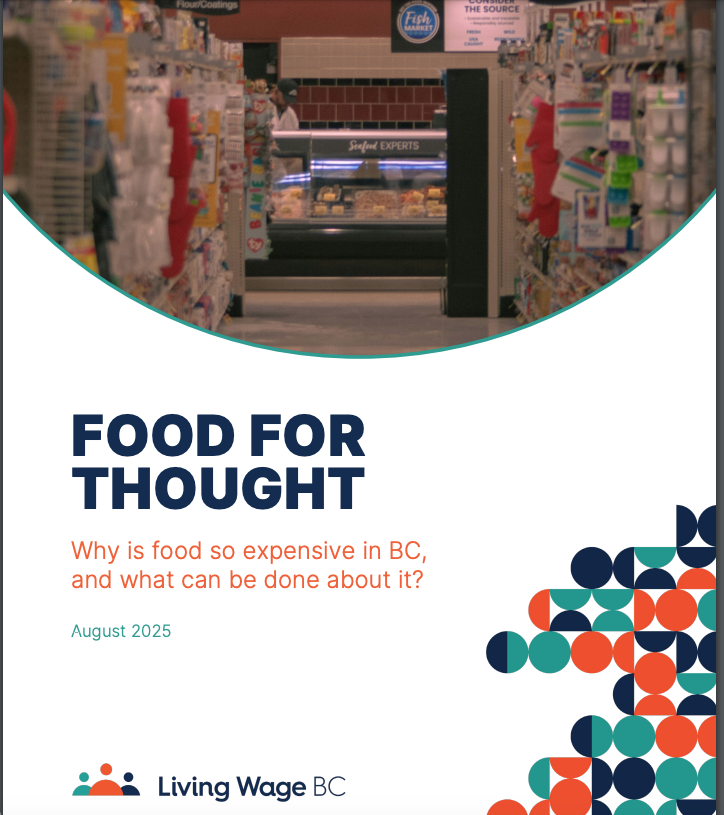
Food For Thought: Why is food so expensive in BC and what can be done about it
As you know, 1 in 5 people in BC are going hungry, and the problem is getting worse. It's hitting hardest where people can least afford it, with the burden falling disproportionately on Indigenous, Black, disabled, and rural communities. Over the past few years, the cost of food has risen by over 22%. But some food costs have risen even more than that. Olive Oil has doubled in price, from $7.93 for a litre in 2020 to $16.85 a litre today. Infant formula, grapes, and beef have all increased higher than inflation.
In our new report, we explore why food is getting more expensive, what the impact is, and what can be done about it. We spoke with key Living Wage Employers responsible for putting food on the table along every step of the food chain, from farmers to food banks and met with nearly 50 low wage workers and heard their concerns and feedback on being able to afford food for themselves and their families. There’s not one thing that is pushing up food prices. It’s being driven by a combination of climate change, supply chain issues, and corporate concentration. Meanwhile, those who work in the food space are some of the lowest paid in BC.
Solutions exist but they require bold, coordinated government action to change inequitable systems. There’s no single thing that will end hunger in BC, but a combination of policies can make food more affordable: investing in local farmers and food systems, supporting independent grocers and bulk-buy programs, raising wages, and ensuring equitable access to food across communities.

Minimum wage hike won’t allow workers to live with dignity
Reprinted: May 30, 2025 by BC Society for Policy Solutions in Research
Imagine working full-time, juggling multiple jobs and struggling to afford rent, groceries or child care. This is an everyday reality for hundreds of thousands of British Columbians.
On June 1, BC’s minimum wage increases to $17.85 an hour from $17.40: a welcome raise for low-wage workers, but far short of a living wage.
A living wage is the hourly rate a worker needs to afford essentials like rent, food, transportation and child care, and for a decent quality of life based on the cost of living in their community. It’s not about luxuries or savings, but basic dignity.
“A living wage is the hourly rate a worker needs for a decent quality of life.”
The minimum wage is set by government policy and not benchmarked against actual costs. As a result, it often lags behind real costs, which can vary significantly between BC communities. That’s why even a full-time job at minimum wage can leave workers struggling to make ends meet.
In Metro Vancouver, the current living wage is $27.05 an hour, a staggering $9.20/hour higher than the new minimum wage. A minimum wage worker would need to work 53 hours every week of the year to live with dignity.

City Motion to Pause Supportive Housing: The intersection between housing and food security
Ian Marcuse
Feb 27, 2025
City of Vancouver Councilors voted 6 - 3 yesterday to approve a Ken Sims ABC motion to pause all new supportive housing building in the DTES. 97 individuals, including members of the Vancouver Food Justice Coalition, many with lived experience, urban planning academics and service providers spoke to council on this draconian motion. The vast majority were alarmed by this cruel and dangerous motion that will slow down much needed housing for individuals with dire mental health, physical and social needs - and at worse lead to increased death for those living on the DTES streets. Several thousand are on waitlists for this housing.

Run for a Universal School Food Program
It was a beautiful sunny and crisp day for a school food run this past Feb 14th Valentine’s Day. Brent Mansfield and a team of kids (well some ran part way) completed a 49 km run to raise awareness about the important need for a universal school food program. Brent is no stranger to these advocacy runs; this latest run urging the provincial government to sign and finalize an agreement with the federal government by the end of March. Under the 2024 National School Food Policy Budget, provinces would see an allocation of $79 million in the first year alone with BC receiving a portion to support B.C. students within this school year through the existing Feeding Futures Program.

Interview with Mariana Chilton, Author of The Painful Truth About Hunger in America: Why We Must Unlearn Everything We Think We Know and Start Again
Thank you for talking with me today. Your new book The Painful Truth About Hunger in America: Why We Must Unlearn Everything We Think We Know and Start Again has helped clarify my thinking and is a critical call for us all to think and look much deeper into the systems that are driving hunger. Approximately 1 in 5 Canadians is food insecure, an astonishingly high number in a country as wealthy as Canada. Household food insecurity rates are trending upwards.

The Best Food Bank Day Will Be When They Don’t Exist
After seven years in power and a narrow election win, NDP Premier David Eby said he heard the voters’ message that his party needs to do better.
Welcome news if the commitment is demonstrated in the January ministerial mandate letters, which direct cabinet members on their key responsibilities.
One focus — championed only by the Greens in the election campaign — should be B.C.’s widespread food poverty and insecurity.
Household food insecurity is trending upwards in B.C., especially among the unemployed and working poor experiencing severe cost of living increases. Food Banks BC is reporting record-breaking client numbers for 2024.
But that’s only the tip of the iceberg.

Mariana Chilton Author Talk - The Painful Truth About Hunger in America
Listen to our conversations with Mariana Chilton about her new book - The Painful Truth About Hunger in America: Why We Must Unlearn Everything We Think That We Know - And Start Again.
And joined by Leona Brown and Elder Marr Dorvault who shared local lived experience.
